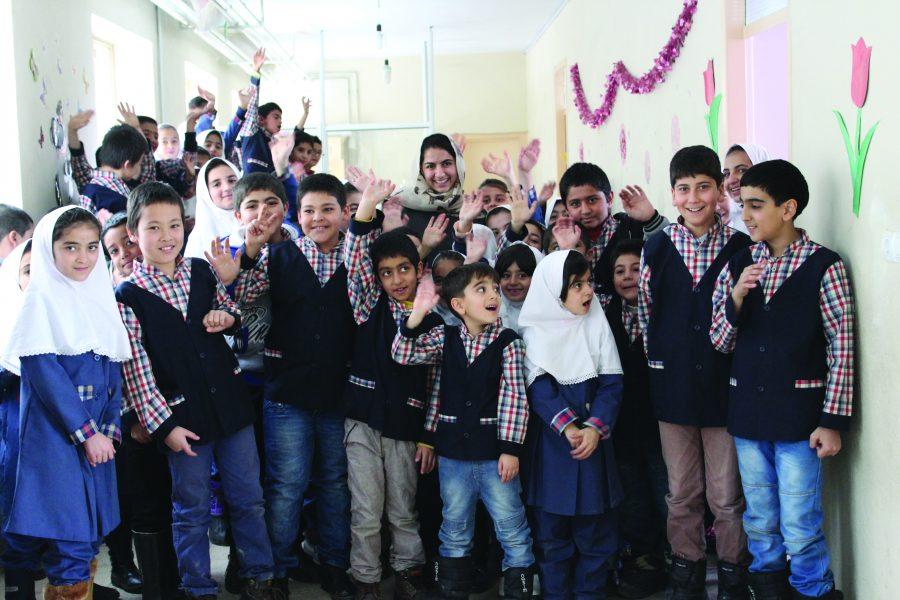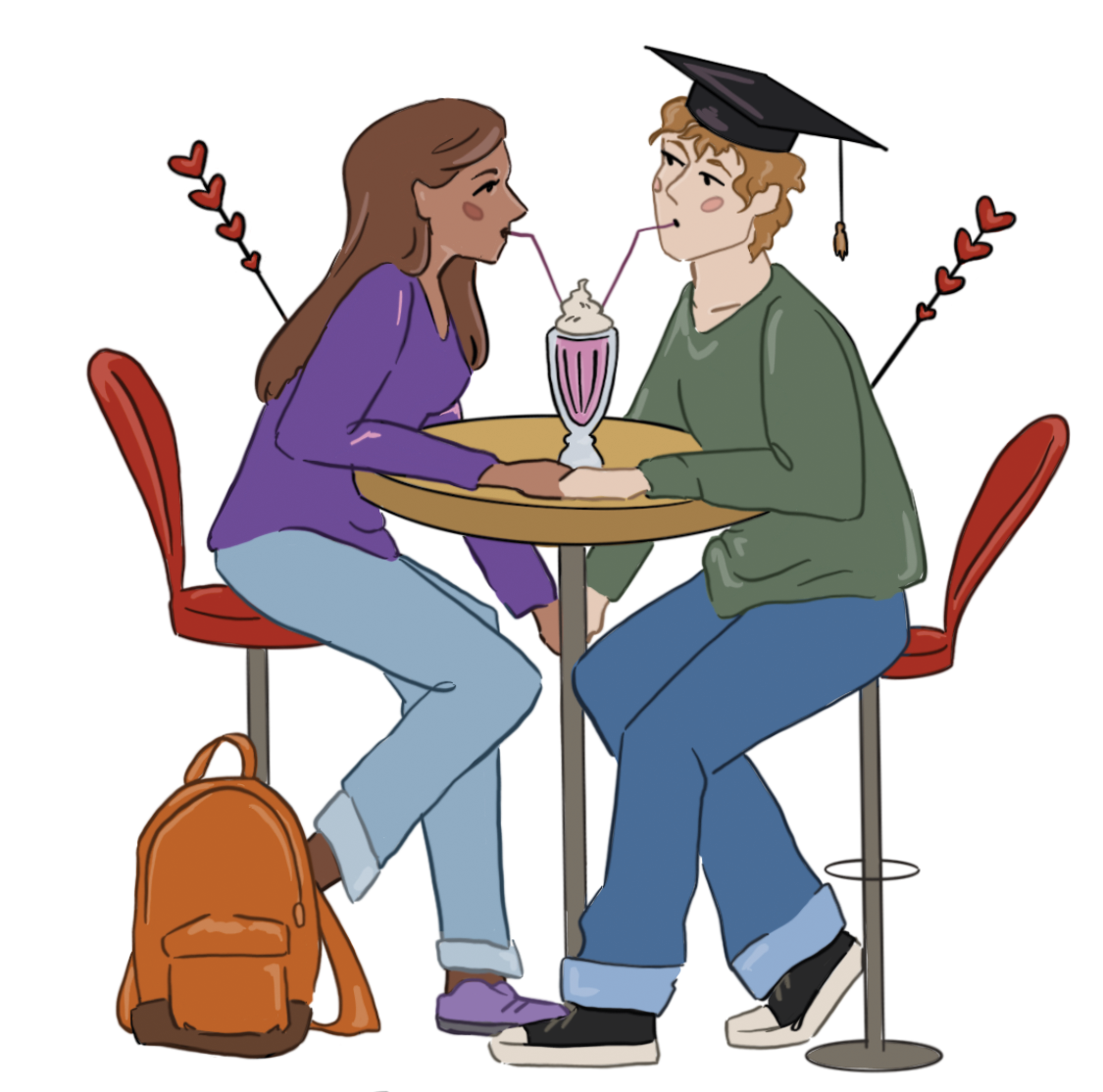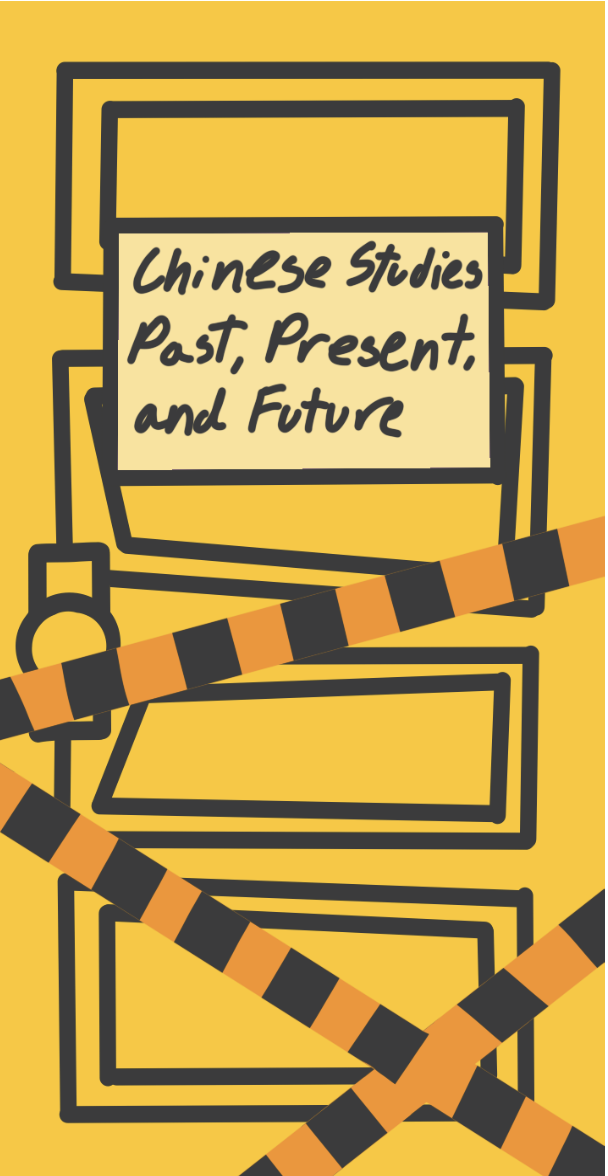During winter break, many students and their families traveled abroad to perform community service or gain exposure to other cultures. Some opted to celebrate holidays such as Christmas, Hanukkah, Kwanzaa and New Year’s abroad as well.
Nicole Bahar ’18: Teaching English in Iran
When the Iranian Revolution broke out in 1979, many of the nation’s universities shut down, forcing those about to attend college to put their plans on hold. Nicole Bahar’s ’18 mother was one of those people.
Instead of leaving for university, Bahar’s mother worked as a ski instructor in the nearby mountain village of Shemshak, where Bahar said she formed meaningful connections to the town and its residents.
Decades later, Bahar and her mother returned to Shemshak during winter break in order to give back to the community, which Bahar said gave her mother a sense of purpose in a time of uncertainty. They taught English and donated educational resources to the underprivileged Shemshak Elementary School.
The school is one of the only co-ed institutions in Iran. Once the revolutionary regime came to power, it imposed laws requiring gender segregation in education.
“I think it’s an important cause,” Bahar said. “Especially since we’re coming from a school with so many opportunities, it’s great to give back to other schools that don’t have those resources.”
Bahar said that she wanted to help ensure that the co-ed school had the resources to produce successful students.
Before traveling to Shemshak, Bahar and her mother also visited family in the capital city, Tehran.
Eitan Sneider ’17: New Year’s in Cuba
On the day that Eitán Sneider ’17 arrived in Havana, his Cuban taxi driver explained that he makes 30 times more than an attorney does.
This revelation was Sneider’s first insight into the combination of traditional Cuban culture and increasing foreign influence, given the recent restoration of U.S.-Cuban relations.
Sneider’s family was eager to visit Cuba before the impact of tourism overshadowed authentic Cuban society, he said.
He said that decades-old cars were mixed with modern taxis on the streets of Havana.
“You don’t really see homeless people there when you’re walking around, but you also don’t really see people living a lavish lifestyle,” Sneider said. “Everyone is content and super happy.”
On New Year’s Eve, Sneider experienced two aspects of Cuban culture: music and hospitality.
He was struck by the generosity of an employee at his hotel in Havana who offered to save him and his family a table at the popular restaurant Sociedad Cultural Rosalia de Castro without asking for a tip.
“I’ve traveled quite a bit, and Cuban people are, of everywhere I’ve been, the nicest people I’ve ever met,” Sneider said.
At the fully-booked restaurant, Sneider joined dozens of Cubans for a show about the history of Cuban music. A live Cuban band and various singers performed Cuban songs from various eras.
Sophia Dienstag ’17: College Apps on a Boat
Sitting on a boat in the middle of the Galapagos, Sophia Dienstag ’17 squinted at her computer screen, trying to make out the blurry letters on a college application.
She began to worry that something was wrong with her eyes, only to discover that blurry vision is a side effect of the seasickness patches that she was wearing.
Dienstag wore the patches throughout the duration of her family boat trip in the Galapagos Islands, Dec. 22 – 31.
Although she could not escape college applications, she said she enjoyed engaging with the natural beauty of the South American destination on hikes and snorkeling adventures.
“There were a few villages on some of the islands, but mostly, there’s no human interference,” Dienstag said. “We saw a lot of blue-footed boobies nesting in the cliffs and sometimes you could see them start to do a special mating dance.”
Dienstag also spent a couple of days in Quito and walked along the equator, located just outside the city. On Christmas Eve, she ate traditional Ecuadorian food at the oldest hotel in Ecuador’s capital Quito.
“It’s really different than any other trip I’ve done,” Dienstag said. “But make sure to bring some seasickness meds.”
Catherine Crouch ’19: Shrimp and Shrines in Japan
Catherine Crouch ’19 was enjoying sushi with her family at a traditional Japanese restaurant in Tokyo when the chef, a live shrimp in hand, asked her, “Raw or boiled?”
Repulsed by the idea of eating a live animal, Crouch responded with a confident “boiled.”
The chef, however, ignored her preference, insisting that she try the raw shrimp.
“I couldn’t say no because of their culture,” Crouch said. “You can’t just turn it down, especially at a small sushi tasting like that. So I just took a deep breath and ate it. It was so bad. It moved in my mouth.”
Crouch said that she loved exploring Tokyo and Kyoto during her week-long trip to Japan during winter break.
She was particularly impressed by the cleanliness of the cities and the politeness of the Japanese people, she said.
Crouch said that visiting the Fushimi-Inari shrine in Kyoto was one of the highlights of the trip. She also said she enjoyed participating in an authentic sushi-making class with her mom.
“It’s an insanely beautiful country,” Crouch said. “Every part of it, whether it’s metropolitan or an old shrine, is just beautiful.”











































